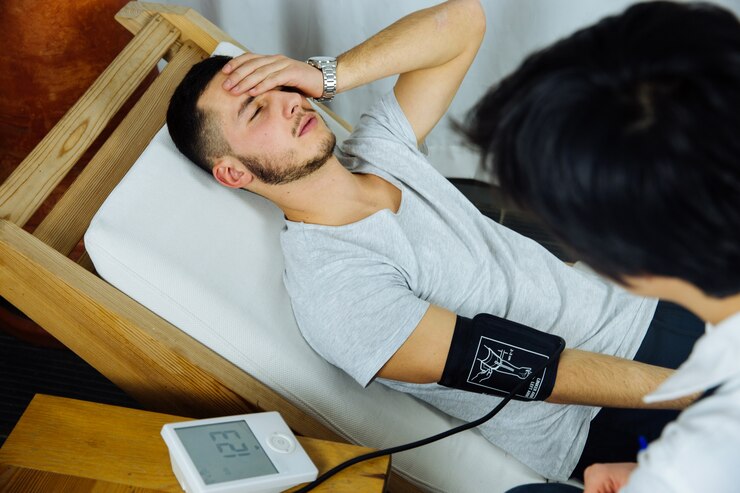
April 22, 2024, By Virginia TMJ Facial Pain and Sleep Center
We all know the struggle of a restless night. Whether it’s work worries, family commitments, or simply an inability to unwind, counting sheep can feel like an impossible task. But what if there’s more to your sleeplessness than meets the eye? Could it be affecting your heart health?
There’s a growing connection between chronic sleep problems and high blood pressure, and one potential culprit is a condition called sleep apnea. Here’s a look at how these two issues might be linked and what you can do about it.
Recognizing the Signs of Sleep Apnea
Sleep apnea is a condition where your breathing repeatedly stops and starts during sleep. You might not even be aware of it, but some common signs include:
- Loud snoring
- Gasping or choking sounds during sleep
- Morning headaches
- Excessive daytime sleepiness
- Difficulty concentrating
- Feeling irritable
If you suspect you might have sleep apnea, it’s crucial to get evaluated by a healthcare professional. Early diagnosis and treatment can make a significant difference in your overall health.
Sleepless Nights and Your Blood Pressure
During sleep, your body naturally goes into a state of relaxation. This includes your heart rate and blood pressure dipping slightly. But if you’re constantly interrupted throughout the night, your body has to work harder to maintain those levels.
Imagine yourself on a rollercoaster. When you’re sleeping soundly, it’s a smooth ride. With sleep apnea, however, it’s like going up and down every few minutes. This constant fluctuation can put stress on your heart and arteries, potentially leading to high blood pressure over time.
Can Treating Sleep Apnea Help Your Blood Pressure?
The good news is that treating sleep apnea can often lead to a decrease in blood pressure. There are various treatment options available, depending on the severity of your condition. These might include lifestyle changes, oral appliances, or CPAP therapy, which involves wearing a mask that delivers continuous positive airway pressure while you sleep.
- Lifestyle changes: Losing weight, avoiding alcohol before bed, and quitting smoking can improve your breathing and potentially reduce sleep apnea symptoms.
- Continuous Positive Airway Pressure (CPAP): This machine delivers a constant flow of air through a mask to keep your airway open during sleep.
- Oral appliance therapy: A dentist can fit you with a custom-made mouthpiece that helps maintain an open airway while you sleep. This can be a suitable option for mild to moderate cases of sleep apnea.
- Surgery: In some cases, surgery may be recommended to remove tissue blocking the airway.
Taking Charge of Your Health
If you’re experiencing chronic sleep problems and battling high blood pressure, don’t hesitate to talk to your doctor. They can assess your individual situation and recommend the best course of action. Remember, prioritizing healthy sleep habits is vital for your overall well-being.
Living in the Glen Allen Area?
If you’re located in Glen Allen, Virginia, and suspect you might have sleep apnea, the Virginia TMJ Facial Pain and Sleep Center can help. Their team of specialists is dedicated to diagnosing and treating sleep disorders, including sleep apnea in glen allen. With their expertise, you can get the restful nights you deserve and potentially improve your blood pressure in the process.
Taking control of your sleep and your health starts with a conversation. Talk to your doctor or a sleep apnea specialist in glen allen today.
